Write & Lift is an ethos of personal and spiritual development through conscious physical exertion and practice of the writing craft. Through this effort to strengthen our bodies and minds, we become anti-fragile and self-respecting sovereign individuals. Through this effort, we may stand against untruth and evil and create a new culture of vitality, strength, and virtue
Bring Back the Secret Society
Society has sterilized the concept of male fraternity. We've replaced the lodge meeting with the LinkedIn connection, brotherhood with isolation, the sacred with the superficial. And in doing so, we've lost something vital to our nature as men. Something that might be worth bringing back (in the right context).
I'm talking, of course, about the secret society.
The Public/Private Split in the Age of Permanent Record
Privacy has become a luxury good. Every opinion, every social interaction, every casual thought tossed into the digital world becomes part of a permanent, searchable record. Everything you write can and will be used against you in the court of public opinion. Or worse, the human resources department.
Ernst Jünger, who witnessed the horrors and psychological aftermath of mechanized warfare firsthand, once remarked that “the modern man must wear a mask.” He recognized that the industrialized world required a strategic division between one's public and private selves.
The secret society—by its very definition—creates a sanctuary from the permanent record. A place where men can remove the masks they wear in professional and public settings, where they can speak without fear. Not to harbor reprehensible ideas, but to explore thought without immediate consequence, to hone ideas through honest dialogue rather than careful brand management.
This separation between public and private life isn't about deception, it's about preservation of the self in a world that demands constant performance. The Greek philosopher Heraclitus noted that "nature loves to hide.” Truth often requires protection and careful revelation. In our hyperconnected age, the wisdom of maintaining separate spheres becomes not just preferable but necessary.
The Brotherhood Vacuum and Cultural Decline
Aside from getting a driver's license or a first job (which are continually being ignored) what coming of age rituals do young men have today? They have no council of elders to guide them through life's transitions. Most lack a tribe or sense of community outside of Xbox live or Discord groups.
What they have instead is a patchwork of parasocial relationships with podcasters, an endless scroll of lifestyle influencers selling them supplements, and online forums filled with other lost boys. This isn't a recipe for healthy male development; it's a formula for alienation.
The traditional fraternal organization provided something essential: a multi-generational community of men united by shared values, engaged in mutual improvement, and committed to contributing to society beyond themselves. The Freemasons built hospitals. The Knights of Columbus provided life insurance to Catholic immigrants who couldn't get coverage elsewhere. The Odd Fellows cared for widows and orphans. These social clubs were engines of civil society.
This vacuum of brotherhood has clear cultural consequences. Throughout history, men gathering in purposeful groups has catalyzed positive cultural movements and societal advancement. The Lunar Society of Birmingham—whose members included industrialist Matthew Boulton, steam engine inventor James Watt, and natural philosopher Erasmus Darwin—met monthly under the full moon to discuss scientific advancements that ultimately helped launch the Industrial Revolution. The Inklings, an informal literary group including J.R.R. Tolkien and C.S. Lewis, gathered at Oxford pubs to create some of the most enduring literary works of the 20th century.
When men lose these structured spaces for collaboration and higher purpose, society loses the concentrated force of masculine energy directed toward constructive ends. Instead, that energy dissipates into nihilistic online forums or degenerates into destructive cynicism.
The Code of Honor in a Post-Honor World
Our culture has systematically dismantled the concept of honor. "Do whatever feels good" has replaced any sense of objective duty or moral obligation. But men instinctively know this is hollow advice. We know, deep down, that we need boundaries, principles, and codes to live by.
A proper secret society would restore a sense of honor through specific codes of conduct. Not arbitrary rules, but time-tested principles that forge better men. Think of the Stoic virtues: wisdom, courage, justice, temperance. Or the chivalric code of medieval Christendom that balanced strength with mercy, courage with humility.
This moral framework becomes particularly powerful when reinforced by peers. Theodore Roosevelt understood this when he formed the "Tennis Cabinet," an informal group of advisors and friends with whom he would exercise, debate policy, and build camaraderie. This circle held each other accountable to standards of excellence in both physical vigor and moral character.
The implementation of such codes in modern secret societies would serve as a counterweight to the moral relativism pervading our institutions. Men need clear standards. Not to restrict their freedom, but to channel it toward excellence. As Edmund Burke said, "Men are qualified for civil liberty in exact proportion to their disposition to put moral chains upon their own appetites."
The Mystery Factor: Allure in an Age of Transparency
Let's be practical. In a world of endless content and “fake” transparency, real mystery has become scarce—and therefore, incredibly valuable.
The most successful movements understand this. They create artificial scarcity, exclusive access, and the allure of being "in the know." Brands drop limited quantities. Nightclubs have velvet ropes. Luxury watches have years-long waiting lists. Why? Because humans are drawn to what they can't easily have.
A 21st-century secret society leverages this basic psychological truth. Not as a LARP, but because selective membership serves an important purpose: it ensures commitment. It tests resolve. It builds an identity worth maintaining.
The mystery itself serves a dual purpose. It creates initial interest while simultaneously filtering for individuals willing to invest time and effort to discover deeper truths. This was the genius of ancient Mystery Schools like those at Eleusis, which used graduated levels of initiation to both attract participants and ensure only the dedicated received full teachings.
In our age of information overload, where the sacred has been made profane through casual exposure, reclaiming the power of mystery creates a psychological space where transformation becomes possible. The veiled entrance demands intentionality from those who would enter.
Now let my imagination run for a second…
The Modern Vitalist Lodge
A group of men united by their commitment to physical, intellectual, and spiritual development. They meet weekly in a converted warehouse with a training floor, library, and communal space. Membership requires demonstrating progressive improvement in strength, knowledge, and character.
Their public face might be a gym or club that serves the broader community. But the inner circle—reserved for those who prove their dedication—engages in deeper philosophical discussions, mentorship programs for fatherless boys in the community, coordinated political action at the local level, physical competition, and week long expeditions into nature.
Taking inspiration from the Renaissance ideal of the "complete man," these vitalists would reject modern fragmentation that separates physical from intellectual development. Jack London's "physical culture" philosophy, which saw bodily strength and mental fortitude as inseparable, would find new expression in men building themselves while building their communities.
The Neo-Craftsman Guild
A brotherhood of men committed to reclaiming the lost arts of making and building. Members learn traditional crafts, from woodworking to blacksmithing, while studying the philosophical underpinnings of creation.
Publicly, they might offer workshops to the community or create beautiful works that stand against plastic disposability of modern “craftsmanship.” Within their private meetings, they'd foster deeper discussions about how to rebuild a culture that values craftsmanship, quality, and the satisfaction of tangible work.
This approach takes inspiration from the medieval guild system, where craftsmen were more than technical specialists but rather cultural guardians passing down accumulated wisdom. True craftsmanship involves the whole man—his creativity, moral judgment, and connection to tradition—not just his learned skill.
The Philosophical Brotherhood
A modern equivalent of the 18th-century philosophical societies that helped birth early American intellectualism. Members would study classical texts, debate contemporary issues, and develop coherent worldviews that could withstand scrutiny.
Their public face might involve publishing thoughtful commentary or hosting debates. But their private meetings would allow for the kind of frank, exploratory discussions that are necessary for wrestling with the moral and social confusion of the 21st century.
This group would follow in the tradition of Benjamin Franklin's Junto Club, where members gathered weekly to discuss morals, politics, natural philosophy, and business affairs. Just as Franklin's group founded America's first lending library and volunteer fire department, today's philosophical brotherhood would seek practical applications of their principles in community improvement projects.
From Isolation to Brotherhood
The secret society addresses one of the most pressing yet under-discussed issues of our time: male isolation. A 2021 Survey Center on American Life study found that the percentage of men who report having "no close friends" has quintupled since 1990.
This isolation has deadly consequences. Men comprise 80% of suicide deaths in America. They're more likely to abuse substances, engage in risky behaviors, and suffer in silence.
Historically, secret societies have helped to mitigate this problem. Through shared ritual, common purpose, and graduated hierarchy, they created environments where men could develop deep bonds and a sense of self-worth outside business or family life.
We need spaces where we can speak freely yet responsibly, where we can challenge and support each other, where we can maintain traditions worth preserving while discarding those that have outlived their usefulness.
We need codes to live by that balance strength with compassion, ambition with ethics, individuality with community.
We need mystery in a world that mistakes transparency for truth.
And we need brotherhood—real, in-person, look-you-in-the-eye brotherhood—in an age where even our closest relationships are mediated through screens.
The world right now is a chaotic mess of competing narratives, digital distractions, and institutional decline. There has never been a better time to build something different, better; timeless yet new.
A dimly lit study. No phones. A good bottle of wine or scotch. A fire in the hearth. And conversation.
Who's in?
As always, thanks for reading
-Joe






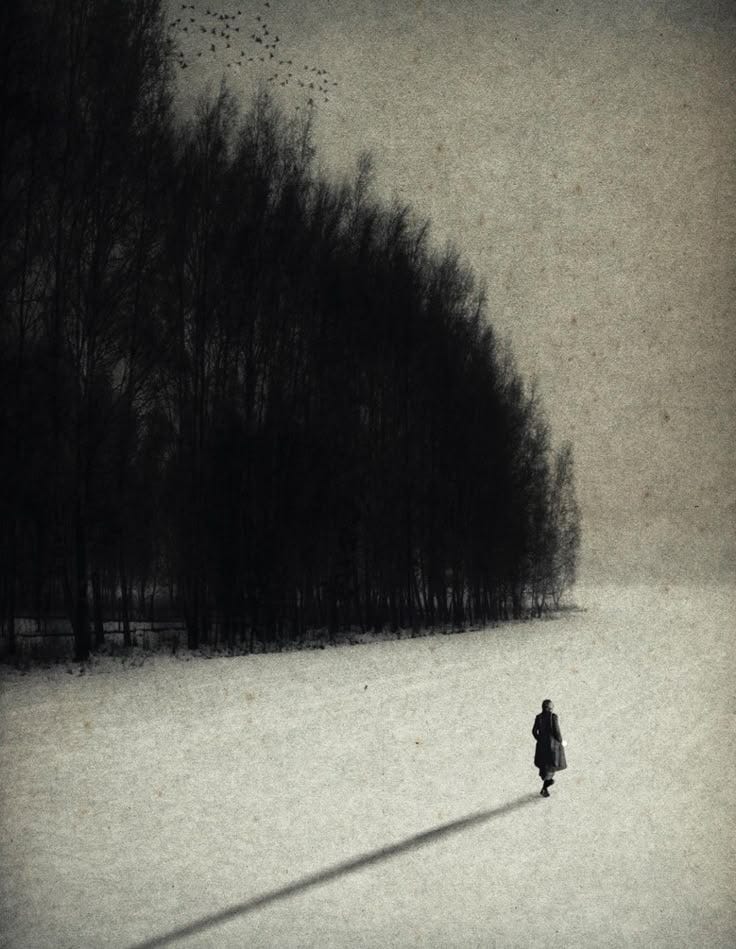
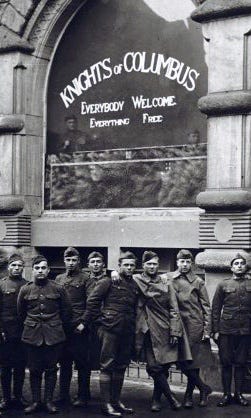

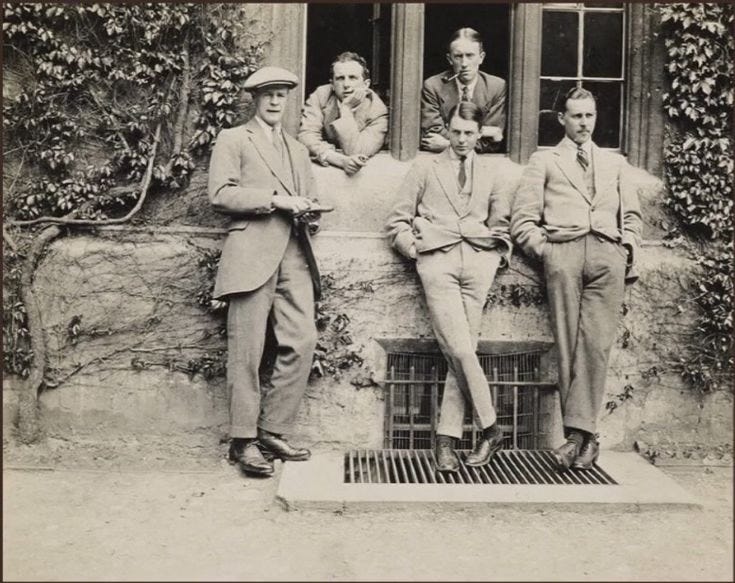
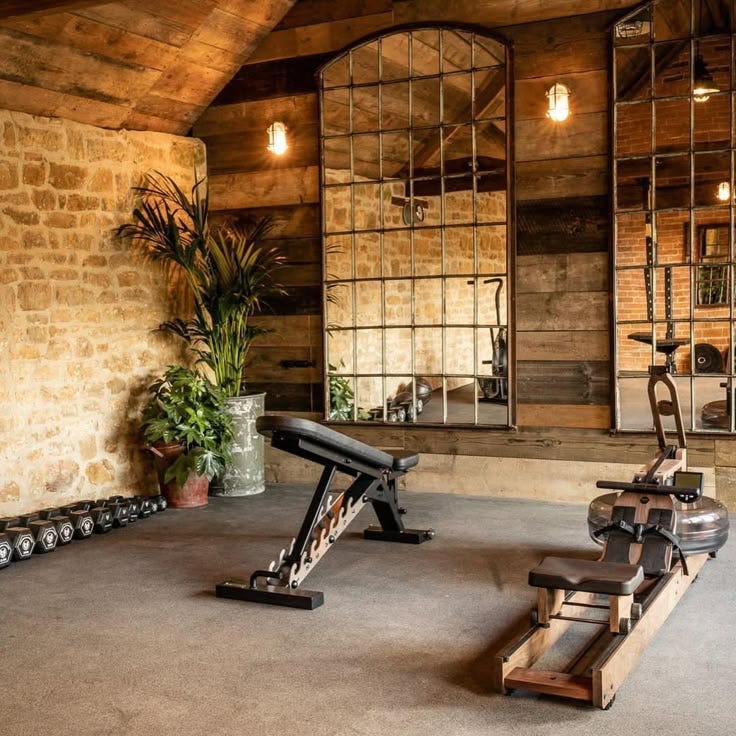
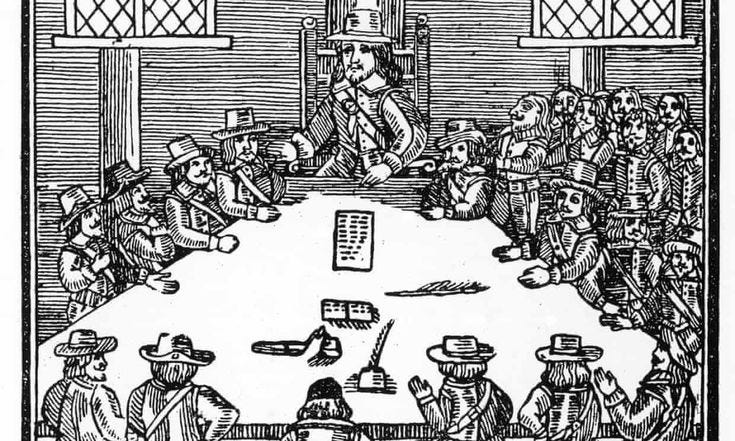

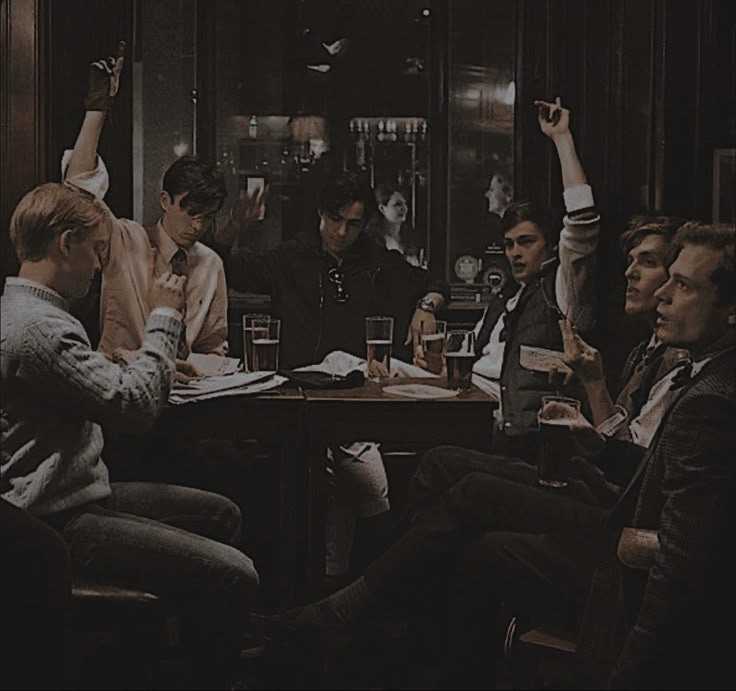
This is a near-perfect articulation of something that's been on my mind a lot lately. Thanks for sharing, Joe!
Masterful incapsulation - let's work on reviving them.